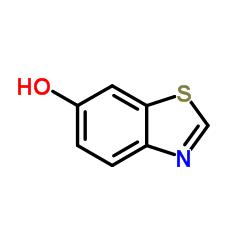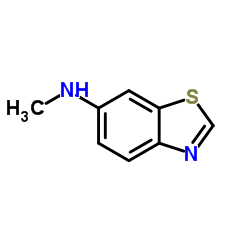533-30-2
| Name | 6-Aminobenzothiazole |
|---|---|
| Synonyms |
MFCD00015461
EINECS 208-559-4 6-Aminobenzothiazole 6-Benzothiazolamine 1,3-benzothiazol-6-amine |
| Density | 1.4±0.1 g/cm3 |
|---|---|
| Boiling Point | 323.1±15.0 °C at 760 mmHg |
| Melting Point | 87-91 °C(lit.) |
| Molecular Formula | C7H6N2S |
| Molecular Weight | 150.201 |
| Flash Point | 149.2±20.4 °C |
| Exact Mass | 150.025162 |
| PSA | 67.15000 |
| LogP | 0.73 |
| Vapour Pressure | 0.0±0.7 mmHg at 25°C |
| Index of Refraction | 1.763 |
Synonym: None Known. SECTION 2 - COMPOSITION, INFORMATION ON INGREDIENTS
Risk Phrases: 20/21/22 36/37/38 SECTION 3 - HAZARDS IDENTIFICATION EMERGENCY OVERVIEW Harmful by inhalation, in contact with skin and if swallowed. Irritating to eyes, respiratory system and skin. Potential Health Effects Eye: Causes eye irritation. May cause chemical conjunctivitis. Skin: Causes skin irritation. Harmful if absorbed through the skin.
Ingestion: Harmful if swallowed. Causes digestive tract irritation. Inhalation: Harmful if inhaled. Causes respiratory tract irritation. Chronic: No information found. SECTION 4 - FIRST AID MEASURES Eyes: Immediately flush eyes with plenty of water for at least 15 minutes, occasionally lifting the upper and lower eyelids. Get medical aid. Skin: Get medical aid. Flush skin with plenty of water for at least 15 minutes while removing contaminated clothing and shoes. Wash clothing before reuse. Ingestion: Never give anything by mouth to an unconscious person. Get medical aid. Do NOT induce vomiting. If conscious and alert, rinse mouth and drink 2-4 cupfuls of milk or water. Wash mouth out with water. Inhalation: Remove from exposure and move to fresh air immediately. If not breathing, give artificial respiration. If breathing is difficult, give oxygen. Get medical aid. Notes to Physician: Treat symptomatically and supportively. SECTION 5 - FIRE FIGHTING MEASURES General Information: As in any fire, wear a self-contained breathing apparatus in pressure-demand, MSHA/NIOSH (approved or equivalent), and full protective gear. During a fire, irritating and highly toxic gases may be generated by thermal decomposition or combustion. Extinguishing Media: Use water spray, dry chemical, carbon dioxide, or chemical foam. SECTION 6 - ACCIDENTAL RELEASE MEASURES General Information: Use proper personal protective equipment as indicated in Section 8. Spills/Leaks: Vacuum or sweep up material and place into a suitable disposal container. Clean up spills immediately, observing precautions in the Protective Equipment section. Avoid generating dusty conditions. Provide ventilation. SECTION 7 - HANDLING and STORAGE Handling: Minimize dust generation and accumulation. Avoid breathing dust, vapor, mist, or gas. Avoid contact with eyes, skin, and clothing. Keep container tightly closed. Avoid ingestion and inhalation. Use with adequate ventilation. Wash clothing before reuse. Storage: Store in a cool, dry place. Store in a tightly closed container. SECTION 8 - EXPOSURE CONTROLS, PERSONAL PROTECTION Engineering Controls: Facilities storing or utilizing this material should be equipped with an eyewash facility and a safety shower. Use adequate ventilation to keep airborne concentrations low. Exposure Limits CAS# 533-30-2: Personal Protective Equipment Eyes: Wear appropriate protective eyeglasses or chemical safety goggles as described by OSHA's eye and face protection regulations in 29 CFR 1910.133 or European Standard EN166. Skin: Wear appropriate protective gloves to prevent skin exposure. Clothing: Wear appropriate protective clothing to prevent skin exposure. Respirators: Follow the OSHA respirator regulations found in 29 CFR 1910.134 or European Standard EN 149. Use a NIOSH/MSHA or European Standard EN 149 approved respirator if exposure limits are exceeded or if irritation or other symptoms are experienced. SECTION 9 - PHYSICAL AND CHEMICAL PROPERTIES Physical State: Solid Color: Orange Odor: Not available. pH: Not available. Vapor Pressure: Not available. Viscosity: Not available. Boiling Point: Not available. Freezing/Melting Point: 98.5 - 99.5 deg C Autoignition Temperature: Not available. Flash Point: Not available. Explosion Limits, lower: Not available. Explosion Limits, upper: Not available. Decomposition Temperature: Solubility in water: Specific Gravity/Density: Molecular Formula: C7H6N2S Molecular Weight: 150.2 SECTION 10 - STABILITY AND REACTIVITY Chemical Stability: Stable. Conditions to Avoid: Incompatible materials, dust generation. Incompatibilities with Other Materials: Strong oxidizing agents, strong acids, reducing agents. Hazardous Decomposition Products: Nitrogen oxides, carbon monoxide, oxides of sulfur, carbon dioxide. Hazardous Polymerization: Has not been reported SECTION 11 - TOXICOLOGICAL INFORMATION RTECS#: CAS# 533-30-2: DL1050200 LD50/LC50: Not available. Carcinogenicity: 1,3-Benzothiazol-6-amine - Not listed by ACGIH, IARC, or NTP. Other: See actual entry in RTECS for complete information. SECTION 12 - ECOLOGICAL INFORMATION SECTION 13 - DISPOSAL CONSIDERATIONS Dispose of in a manner consistent with federal, state, and local regulations. SECTION 14 - TRANSPORT INFORMATION IATA Shipping Name: TOXIC SOLID, ORGANIC, N.O.S. Hazard Class: 6.1 UN Number: 2811 Packing Group: III IMO Shipping Name: TOXIC SOLID, ORGANIC, N.O.S. Hazard Class: 6.1 UN Number: 2811 Packing Group: III RID/ADR Shipping Name: TOXIC SOLID, ORGANIC, N.O.S. Hazard Class: 6.1 UN Number: 2811 Packing group: III SECTION 15 - REGULATORY INFORMATION European/International Regulations European Labeling in Accordance with EC Directives Hazard Symbols: XN Risk Phrases: R 20/21/22 Harmful by inhalation, in contact with skin and if swallowed. R 36/37/38 Irritating to eyes, respiratory system and skin. Safety Phrases: S 22 Do not breathe dust. S 26 In case of contact with eyes, rinse immediately with plenty of water and seek medical advice. S 36/37/39 Wear suitable protective clothing, gloves and eye/face protection. S 45 In case of accident or if you feel unwell, seek medical advice immediately (show the label where possible). WGK (Water Danger/Protection) CAS# 533-30-2: No information available. Canada None of the chemicals in this product are listed on the DSL/NDSL list. CAS# 533-30-2 is not listed on Canada's Ingredient Disclosure List. US FEDERAL TSCA CAS# 533-30-2 is not listed on the TSCA inventory. It is for research and development use only. SECTION 16 - ADDITIONAL INFORMATION MSDS Creation Date: 10/08/2004 Revision #1 Date: 12/17/2004 The information above is believed to be accurate and represents the best information currently available to us. However, we make no warranty of merchantability or any other warranty, express or implied, with respect to such information, and we assume no liability resulting from its use. Users should make their own investigations to determine the suitability of the information for their particular purposes. In no way shall the company be liable for any claims, losses, or damages of any third party or for lost profits or any special, indirect, incidental, consequential or exemplary damages, howsoever arising, even if the company has been advised of the possibility of such damages. SECTION 16 - ADDITIONAL INFORMATION N/A |
CHEMICAL IDENTIFICATION
HEALTH HAZARD DATAACUTE TOXICITY DATA
|
| Symbol |

GHS07 |
|---|---|
| Signal Word | Warning |
| Hazard Statements | H315-H319-H335 |
| Precautionary Statements | P261-P305 + P351 + P338 |
| Personal Protective Equipment | dust mask type N95 (US);Eyeshields;Gloves |
| Hazard Codes | Xn:Harmful; |
| Risk Phrases | R20/21/22;R36/37/38 |
| Safety Phrases | S26-S36-S36/37/39-S22 |
| RIDADR | NONH for all modes of transport |
| WGK Germany | 3 |
| RTECS | DL1050200 |
| HS Code | 2934999090 |
|
~92% 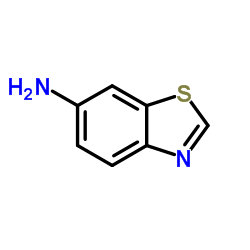
533-30-2 |
| Literature: Advanced Synthesis and Catalysis, , vol. 352, # 11-12 p. 1834 - 1840 |
|
~% 
533-30-2 |
| Literature: Bulletin de la Societe Chimique de France, , p. 103,111 |
|
~% 
533-30-2 |
| Literature: Journal of the Chemical Society, Perkin Transactions 1: Organic and Bio-Organic Chemistry (1972-1999), , p. 2358 - 2361 |
|
~6% 
533-30-2 |
| Literature: Journal of the Chemical Society, Perkin Transactions 1: Organic and Bio-Organic Chemistry (1972-1999), , p. 2358 - 2361 |
|
~% 
533-30-2 |
| Literature: Yakugaku Zasshi, , vol. 62, p. 47,51; dtsch. Ref. S. 19, 22 Chem.Abstr., , p. 609 |
|
~% 
533-30-2 |
| Literature: Yakugaku Zasshi, , vol. 62, p. 47,51; dtsch. Ref. S. 19, 22 Chem.Abstr., , p. 609 |
|
~% 
533-30-2 |
|
Literature: Dissertation |
| Precursor 8 | |
|---|---|
| DownStream 10 | |
| HS Code | 2934999090 |
|---|---|
| Summary | 2934999090. other heterocyclic compounds. VAT:17.0%. Tax rebate rate:13.0%. . MFN tariff:6.5%. General tariff:20.0% |


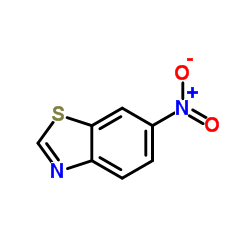
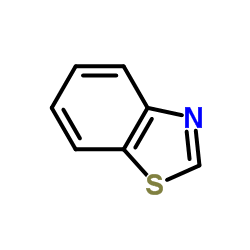
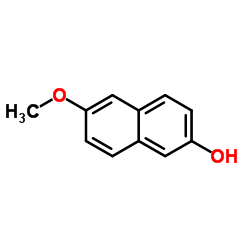

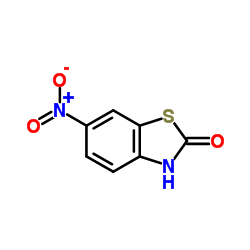
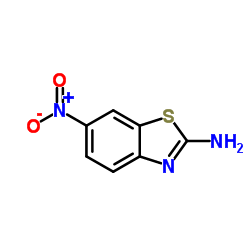
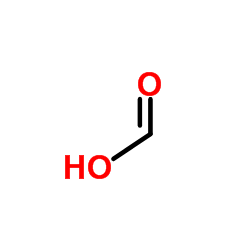

![6-Bromobenzo[d]thiazole structure](https://image.chemsrc.com/caspic/458/53218-26-1.png)
![7H-Pyrrolo[2,3-g]benzothiazol-7-one,6,8-dihydro-(9CI) structure](https://image.chemsrc.com/caspic/055/222036-27-3.png)
![8-METHYLSULFANYL-6,8-DIHYDRO-THIAZOLO[5,4-E]INDOL-7-ONE structure](https://image.chemsrc.com/caspic/093/222036-26-2.png)
![Thiazolo[5,4-f]quinoline (8CI,9CI) structure](https://image.chemsrc.com/caspic/493/234-48-0.png)
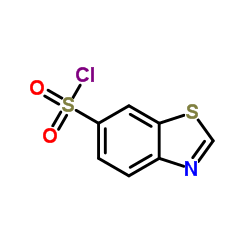
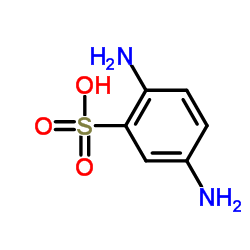
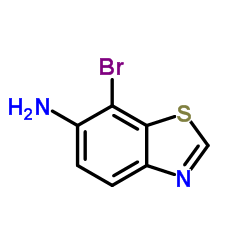
![7-Bromobenzo[d]thiazole structure](https://image.chemsrc.com/caspic/465/767-70-4.png)
